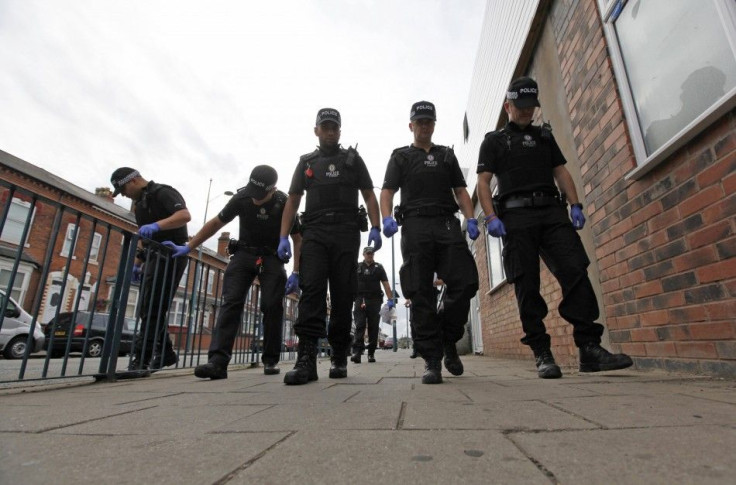UK streets calmer after nights of riots and chaos

Days of rioting and looting across Britain looked to be cooling Wednesday after Prime Minister David Cameron's promised a fightback and flooded city streets with police to try to restore order.
By 9:30 p.m. local time (4:30 p.m. EDT), incidents were limited to isolated skirmishes and standoffs between riot police and groups of youths, after four nights when often unchecked violence had been well under way by nightfall.
The capital -- host to the 2012 Olympics -- looked set for another uneasy but relatively quiet night, with 16,000 police deployed across the city and local groups protecting areas torn apart by arson, looting and running street battles.
Other cities in northern and central England such as Manchester, Liverpool and Birmingham, which suffered the worst violence Tuesday night, also appeared calmer.
"We needed a fightback and a fightback is under way," Cameron said after a meeting Wednesday of the government's COBRA committee that deals with national security crises.
"Whatever resources police need, they will get."
The Conservative-Liberal Democrat coalition government, making deep cuts to public services to tackle a record budget deficit, has been quick to deny that the unrest was linked to austerity measures, calling the disorder "pure criminality."
Public anger over the widespread looting of shops appears to have strengthened the government's argument, with stolen goods ranging from the expensive -- televisions and jewelry -- to the absurd -- sweets and bottles of alcohol.
However, community leaders and rioters themselves said the violence was an expression of the frustration felt by the poorest inhabitants of a country that ranks among the most unequal in the developed world.
"They've raised rates, cut child benefit. Everyone just used it as a chance to vent," one man who took part in unrest in the east London district of Hackney told Reuters.
"BROKEN SOCIETY"
After being accused of a sluggish response, Cameron has ordered parliament to reconvene Thursday, disrupting his own summer holiday and the parliamentary summer recess.
He made no reference to social and economic problems in inner-city areas. The initial trouble flared after an Afro-Caribbean man died from a gunshot wound after an incident involving armed police in London.
"There are pockets of our society that are not just broken but frankly sick," said Cameron, who has made fixing "broken Britain" a cornerstone of his premiership.
Courts worked through the night Wednesday to process riot cases. Among the defendants were an 11-year old boy, a charity worker and a teaching assistant. More than 1,000 arrests had been made, with 805 in London alone.
VIGILANTES
In Birmingham, police launched a murder inquiry after three Muslim men died after being run over by a car in the mayhem there. The men had been part of a group of British Asians protecting their area from looters.
The violence has appalled many Britons, who have been transfixed by images of rioters attacking individuals and raiding family-owned stores as well as targeting big business.
It has also prompted soul-searching.
Community leaders said the violence in London, the worst for decades in the multi-ethnic capital of 7.8 million people, was rooted in growing disparities in wealth and opportunity.
"This disturbing phenomenon has to be understood as a conflagration of aggression from a socially and economically excluded underclass," the liberal Independent newspaper said.
The right-wing Daily Telegraph took a harder line.
"The thugs must be taught to respect the law the hard way. These riots have shamed the nation and the government must be held to account."
© Copyright Thomson Reuters 2024. All rights reserved.





















